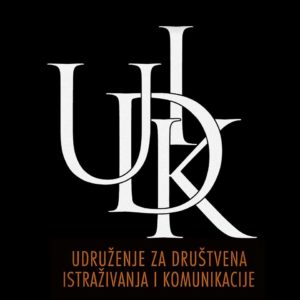 This year marks the 29th anniversary of the genocide in Srebrenica – the largest massacre committed on the European continent since World War II. The Srebrenica genocide was the July 1995 genocide of more than 8,000 Bosniaks, mainly men and boys, in and around the town of Srebrenica during the Bosnian war. More than 30,000 women, children and elderly were forcibly deported. In an effort to conceal the crimes which they have committed, the Republika Srpska Army (VRS) relocated the bodies from the sites of mass execution, burying them in a series of mass graves throughout the Podrinje. To date, a few hundred primary, secondary and tertiary mass graves have been located and exhumed.
This year marks the 29th anniversary of the genocide in Srebrenica – the largest massacre committed on the European continent since World War II. The Srebrenica genocide was the July 1995 genocide of more than 8,000 Bosniaks, mainly men and boys, in and around the town of Srebrenica during the Bosnian war. More than 30,000 women, children and elderly were forcibly deported. In an effort to conceal the crimes which they have committed, the Republika Srpska Army (VRS) relocated the bodies from the sites of mass execution, burying them in a series of mass graves throughout the Podrinje. To date, a few hundred primary, secondary and tertiary mass graves have been located and exhumed.
In 2004, the International Criminal Tribunal for the former Yugoslavia (ICTY) ruled that the crimes in Srebrenica in July 1995 committed by Serb forces constituted genocide. The International Court of Justice (ICJ) upheld this ruling in 2007. In May 2024, the United Nations General Assembly voted to adopt a resolution establishing July 11 as International Day of Reflection and Commemoration of the 1995 Genocide in Srebrenica.
On the occasion of the anniversary, the Association for Social Research and Communication (UDIK) presents a study on media coverage of war events in the 1990s with a focus on Srebrenica and Vukovar.
Journalist Matea Jerković analyzed four daily newspapers as they reported on Srebrenica during and after the war in Bosnia and Herzegovina.
In the first years after the Srebrenica genocide, some media published short news about life in Srebrenica or reported on the leadership of Republika Srpska.The extremely unprofessional way of reporting is evidenced by the Glas srpski (today Glas Srpske), which during the period of the genocide, and especially in the years after, was the messenger of the VRS and mainly reported on the “defense” and “liberation” of Srebrenica, which significantly contributed to the denial of genocide and other war crimes. This certainly had an impact on society’s difficult dealing with everything that happened in Srebrenica and other parts of our country during the war. Unfortunately, even today this daily continues to talk about the events in Srebrenica as a crime and not genocide, focusing its reporting on the suffering of the Serbian people who are unfairly forgotten by the public and the international community.
Although in the 1990s the wartime events in Srebrenica were discussed in the context of the “liberation of Srebrenica”, already in the early 2000s, Srebrenica was placed in the context of the tragedy and suffering of the Srebrenica victims. The results of the work of the Hague Tribunal influenced the headlines of newspaper stories to change. The media began to publish stories about Srebrenica as a special place of piety. Srebrenica is in a special focus in July, when the anniversary is commemorated, and the media especially follows the Peace March and the commemoration ceremony in Potočari.
The honorable way of reporting is demonstrated by the newspaper Oslobođenje, which reported on Srebrenica even before the genocide, pointing out hunger, suffering, attacks and other problems faced by the people of Srebrenica. Numerous stories have been published that call for the prevention of attacks, genocide and the overall tragedy that will later befall the people of Srebrenica. In the post-war years, this daily often put Srebrenica in focus, and it is still the case today, when the July editions mostly bring stories from Srebrenica and Potočari, following the main commemoration and collective funeral.
Although more than three decades have passed since the Bosnian war, the struggle for the interpretation of the war is still being fought today. The media is used as a toolto reinterpretthe war events of the 1990s, but also the increasingly expressive war-mongering policy, which is particularly visible in the pre-election period. It is inevitable that journalists and the media are an important segment of our society that can, in an honorable or less honorable way, influence society’s confrontation with the tragic and traumatic past. It is up to them which approach they will use and which path they will follow.
 UDIK Udruženje za društvena istraživanja i komunikacije
UDIK Udruženje za društvena istraživanja i komunikacije

